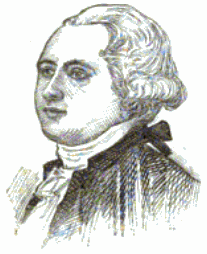Arthur Lee (diplomat) facts for kids
Quick facts for kids
Arthur Lee
|
|
|---|---|
 |
|
| Born | 20 December 1740 Stratford, Virginia
|
| Died | 12 December 1792 (aged 51) Urbanna, Virginia
|
| Education | |
| Occupation | Physician, diplomat |
| Parents |
|
| Signature | |
Arthur Lee (born December 20, 1740 – died December 12, 1792) was an important person in early American history. He was a doctor and spoke out against slavery in Virginia. He also worked as an American diplomat during the American Revolutionary War.
He helped create and signed the 1778 Treaty of Alliance with France. This treaty made France and the United States allies in the war. He worked on this with Benjamin Franklin and Silas Deane.
Lee studied medicine and law. He lived in London during the Revolutionary War. There, he represented the American colonies to Britain and France. He also secretly gathered information as an American spy. After the war, he returned to Virginia. He then served as a delegate in the Continental Congress.
Contents
Early Life and Education
Arthur Lee was born at Stratford Hall in Virginia. He was the youngest son of Thomas Lee and Hannah Harrison Ludwell. Many of his brothers were also important diplomats during the American Revolution. These included Richard Henry Lee, Francis Lightfoot Lee, and William Lee.
He went to Eton College in England. He then studied medicine at the University of Edinburgh in Scotland. He graduated in 1764. In 1765, he also studied at the University of Leiden in the Netherlands.
Speaking Out for America
In 1764, Lee wrote an important essay. It was called "An Essay in Vindication of the Continental Colonies of America." In this work, he strongly disagreed with the Townshend Acts. These were taxes placed on American colonists by the British. Lee became a major supporter of American resistance to British rule.
Because of his writings, he was chosen to be a member of the American Philosophical Society in 1768. This was a group for important thinkers and scientists.
Life in London
From 1770 to 1776, Lee studied law in London. He became a lawyer and practiced there. During this time, he wrote many influential pamphlets and essays. These writings spoke out against slavery and British policies in America.
In 1770, Lee became the Massachusetts correspondent to Britain and France. This meant he shared information between Massachusetts and these countries. He started writing to Samuel Adams, a key American leader. They became good friends.
While in London, Lee met Benjamin Franklin. Franklin was working there for Pennsylvania. Lee sometimes disagreed with Franklin's lifestyle. He told Samuel Adams that Franklin might not be the best person to negotiate for a free people.
Diplomat and Spy
During the American Revolution, the Continental Congress chose Lee as an envoy. An envoy is a diplomat who represents their country. He was sent to Spain and Prussia (a powerful European country). His work there had mixed results.
In 1775, a secret committee of the Second Continental Congress asked Lee to be their confidential correspondent in London. This meant he would gather secret information. Many historians consider Lee to be one of America's first spies. He collected important information in France and Britain. He also successfully found out that Edward Bancroft, who worked for the American legation in Paris, was actually a British spy.
Later, in Paris, Lee helped negotiate the Treaty of Alliance (1778) with France. This was a very important agreement. However, he had disagreements with Benjamin Franklin and Silas Deane. He convinced Congress to call Deane back to America. Soon after, Lee himself was called back.
Later Life and Legacy
After returning to Virginia in 1782, Lee became a delegate to the Continental Congress. This was the governing body of the United States at the time. In the same year, he was elected a Fellow of the American Academy of Arts and Sciences.
In 1790, Arthur Lee bought a beautiful mansion called Lansdowne. It is located in Urbanna, a small town on Virginia's Middle Peninsula. This house is still standing today and is a private home.
Arthur Lee died in Urbanna in 1792. He was buried in the garden of Lansdowne. He never married and did not have any children. Plans to move his burial place to Stratford Hall never happened. Lansdowne was added to the National Register of Historic Places in 1974.
Images for kids
 | John T. Biggers |
 | Thomas Blackshear |
 | Mark Bradford |
 | Beverly Buchanan |


